Is April The Cruelest Month?
April may qualify as the most eventful and consequential month in American, if not world, history
April is the cruellest month, breeding
Lilacs out of the dead land, mixing
Memory and desire, stirring
Dull roots with spring rain.
Winter kept us warm, covering
Earth in forgetful snow, feeding
A little life with dried tubers.
— TS Eliot
Eliot’s opening lines were a subversion of “The Canterbury Tales,” in which Geoffrey Chaucer extols April’s restorative powers. However, I was always struck by Eliot’s line about how April mixes “Memory and desire.” April, after all, is the first full month of Spring and a beautiful time to be in the mid-Atlantic states, as flowers and trees come to life and the temperatures begin to warm, the threat of snow gracefully fading from our tired, dark thoughts of winter.
And then there’s tax day, which always invokes PTSD (post-traumatic stress disorder) in my household. It is a painful reminder, no matter the smallish refunds I apply to next year’s taxes, of how byzantine, convoluted, and nonsensical our tax code is and our politicians’ complete incompetence, if not refusal, to fix it - state and federal (God bless those eight states without an income tax, but you have other issues, like higher sales and property taxes). The Tax Cuts and Jobs Act of 2017 was a slight improvement, helping millions of taxpayers escape the pain of itemizing deductions.
I feel about tax lobbyists and the Internal Revenue Service, like Shakespeare, about lawyers. "The first thing we do, let's kill all the lawyers" (Henry VI, part II).
However, the word “Memory” applies to perhaps the most eventful month on our Gregorian calendar, especially here in the United States. You can learn so much by just looking at what transpired this month, a mix of tragedy and progress, from the launching of the American Revolution to the assassination of our 16th President, Abraham Lincoln. It was the first, but sadly was not and won’t be the last, attempted assassination of a president or candidate for president.
And Lincoln’s is not the only infamous assassination to occur during April. There are also notable birthdays, from Thomas Jefferson to Adolph Hitler. Birthdays in April alone declare the month as intensely bipolar.
The American Civil War began (the first shots were fired at Fort Sumter on April 12, a month after Lincoln’s March 6th inauguration). It practically ended with Robert E. Lee’s Army of Northern Virginia surrendering to US Grant’s Grand Army of the Republic at Wilmer McLean’s home in Appomattox Station, Virginia, four years later, almost to the day. Ironically, the war’s first significant battle in 1861 encircled McLean’s prior home near Manassas, Virginia, now part of an impressive, must-visit National Battlefield.
McLean and his family moved to Appomattox to escape the ravages of war after a cannon ball ripped through their farmhouse, not realizing he would host its end four years later. Grant’s terms of surrender were generous, as directed by Lincoln just days before he was assassinated at Washington, DC’s Ford’s Theater by actor and Confederate sympathizer John Wilkes Booth.

Lee abandoned the Confederate Capitol of Richmond, Virginia, on April 3rd and marched west, hoping to merge with Gen. Joseph E. Johnston’s Army of Tennessee encamped in North Carolina.
Despite brilliant defensive tactics still taught today, the outmanned and outgunned Johnston could not deter Union General William Tecumseh Sherman’s “March to the Sea.” Sherman’s troops - which included my great-great-grandfather, George Washington Burris - destroyed much of the South as part of a “total war” strategy. His compatriot, Gen. Philip Sheridan, did much the same by setting Virginia’s Shenandoah Valley and the fertile farm lands and estates of Loudoun County ablaze.
Lee never connected with Johnston. Lee’s supply lines were cut, and much of his dwindling and starving army was divided or captured. On April 26th, Johnston surrendered to Sherman on similar terms offered to Lee at a farmhouse between Durham Station and Hillsborough, North Carolina. Subsequently, two additional Confederate army surrenders occurred in Alabama and Louisiana, effectively ending the Confederacy and its rebellion. Confederate President Jefferson Davis, a former US Senator and US Secretary of War, was the only Confederate high official imprisoned after he was caught on May 10th in Georgia. Confederate Secretary of State Judah Benjamin, another former US Senator, escaped to England and lived out his life as a barrister.
Other Confederate officials and officers escaped to Mexico or Canada; some, including Vice President Alexander Stephens and General Johnston, would win seats in Congress despite their participation in an insurrection. Johnston was a pallbearer at his nemesis-turned-friend Sherman’s funeral, caught pneumonia and died shortly thereafter.
So much happened in April 1865 that author Jay Winik wrote a fabulous book about how it saved America.
And this is just scratching the surface of all that has occurred (and continues to occur—see: Trump presidency) during the fourth month on our calendar. Here are a few other significant historical events worth commemorating, with credit to historyplace.com.
April 2, 1513 - Spanish explorer Ponce De Leon sighted Florida and claimed it for the Spanish Crown after landing at the site of present day St. Augustine, now the oldest city in the continental U.S.
April 2, 1982 - The beginning of the Falkland Islands War as troops from Argentina invaded and occupied the British colony near the tip of South America. The British retaliated and defeated the Argentineans on June 15, 1982, after ten weeks of combat, with about 1,000 lives lost. One of the veterans of that war was Prince Andrew.
April 3, 1860 - The Pony Express service began in the American West as the first rider departed St. Joseph, Missouri. For $5 an ounce, letters were delivered 2,000 miles to California within ten days. The famed Pony Express riders rode from 75 to 100 miles before handing the letters to the next rider. A total of 190 way stations were located about 15 miles apart. The service lasted less than two years, ending upon the completion of the overland telegraph.
With its recent announcement of another recommended planned postage hike to 78 cents for a first-class letter, the sclerotic US Postal Service is well on its way to emulating the Pony Express's cost and delivery schedule.
April 4, 1968 - Civil Rights leader Rev. Dr. Martin Luther King was shot and killed by a sniper, James Earl Ray, in Memphis, Tennessee. As head of the Southern Christian Leadership Conference, he championed non-violent resistance to end racial oppression and was awarded the Nobel Peace Prize in 1964. He is best remembered for his I Have a Dream speech at the 1963 Civil Rights March on Washington. That march and King's other efforts helped pass the Civil Rights Act of 1964 and the Voting Rights Act of 1965. In 1986, Congress established the third Monday in January as a national holiday in his honor.
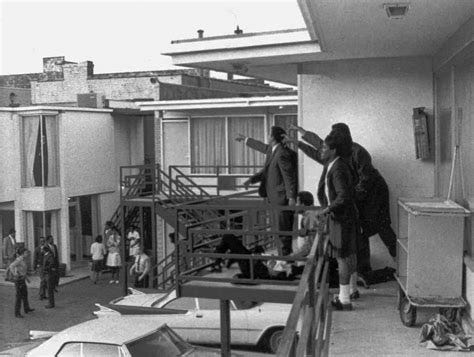
April 6, 1896—After a 1500-year break, the first Olympics of the modern era were held in Athens, Greece.
April 6, 1917 - Following a vote by Congress approving a declaration of war, the U.S. entered World War I in Europe.
April 10, 1945 - The Nazi concentration camp at Buchenwald was liberated by U.S. troops. Located near Weimar in Germany, Buchenwald was established in July 1937 to hold criminals and was one of the first major concentration camps. It later included Jews and homosexuals and was used as a slave labor center for nearby German companies. Of a total of 238,980 Buchenwald inmates, 56,545 perished. Following its liberation, Supreme Allied Commander General Dwight D. Eisenhower and other top U.S. commanders visited the sub-camp at Ohrdruf. U.S. Troops also forced German civilians from nearby towns into the camp to view the carnage.
April 10, 1998 - Politicians in Northern Ireland reached an agreement aimed at ending 30 years of violence, which had claimed over 3,400 lives. Under the agreement, Protestants and Catholics in Northern Ireland would govern together in a new 108-member Belfast assembly, thus ending 26 years of ''direct rule'' from London.
April 11, 1968 - A week after Martin Luther King's assassination, President Lyndon B. Johnson signed the Civil Rights Act of 1968 into law. The law prohibited discrimination in housing, protected civil rights workers, and expanded the rights of Native Americans.
April 11, 1970 - Apollo 13 was launched from Cape Kennedy at 2:13 p.m. Fifty-six hours into the flight, an oxygen tank exploded in the service module. Astronaut John L. Swigert saw a warning light that accompanied the bang and said, "Houston, we've had a problem here." Swigert, James A. Lovell, and Fred W. Haise then transferred into the lunar module, using it as a "lifeboat," and began a perilous return trip to Earth, splashing down safely on April 17th. Swigert, in 1982, was elected to Congress from Colorado but died of cancer before he was sworn in.
April 12, 1945 - President Franklin D. Roosevelt died suddenly at Warm Springs, Georgia, after suffering a cerebral hemorrhage. He had been President since March 4, 1933, elected to four consecutive terms, and had guided America out of the Great Depression and through World War II. He died just before Germany’s official surrender on May 8th and was succeeded by Vice President Harry Truman, who ended World War II by introducing Japan to the ravages of two nuclear bombs in August 1945.
April 12, 1961 - Russian cosmonaut Yuri Gagarin became the first human in space. He traveled aboard the Soviet spacecraft Vostok I to an altitude of 187 miles (301 kilometers) above the earth and completed a single orbit in a flight lasting 108 minutes. The spectacular Russian success intensified the ongoing Space Race between the Russians and Americans. Twenty-three days later, Alan Shepard became the first American in space. This was followed in 1962 by President Kennedy’s open call to land an American on the moon before the decade’s end, which America did in 1969 during Richard Nixon’s presidency - the man Kennedy defeated for the presidency in 1960.
April 15, 1912 - In the icy waters off Newfoundland, the luxury liner Titanic with 2,224 persons on board sank at 2:27 a.m. after striking an iceberg just before midnight. Over 1,500 persons drowned while 700 were rescued by the liner Carpathia, which arrived about two hours after the Titanic went down.
April 15, 1947 - Jackie Robinson became the first African American player in Major League Baseball when he took over first base for the Brooklyn Dodgers on April 15, 1947. Until that moment, black players were relegated to the Negro leagues beginning in the 1880s. He was inducted into the Baseball Hall of Fame in 1962. This event heralded the integration of professional sports.
April 17, 1961 - A U.S.-backed attempt to overthrow Premier Fidel Castro of Cuba failed disastrously in what became known as the Bay of Pigs fiasco. About 1,400 anti-Castro exiles invaded the island's southern coast along the Bay of Pigs but were overrun by 20,000 Cuban soldiers and jailed. Trained and guided by the U.S., the exiles had expected support from U.S. military aircraft and help from anti-Castro insurgents on the island. Instead, they had fended for themselves without support due to several mishaps. The failed invasion heightened Cold War tensions between Cuba's political ally, Soviet Russia, and the fledgling administration of President John F. Kennedy. The following year, the Russians brazenly installed nuclear missiles in Cuba, resulting in the Cuban Missile Crisis.
April 19, 1775 - At dawn in Massachusetts, about 70 armed militiamen stood face to face on Lexington Green with a British advance guard unit. An unordered 'shot heard around the world' began the American Revolution. A volley of British rifle fire was followed by a charge with bayonets, leaving eight Americans dead and ten wounded.
April 19, 1993 - At Waco, Texas, the compound of the Branch Davidian religious cult burned to the ground with 82 persons inside, including 17 children. The fire erupted after federal agents battered buildings in the compound with armored vehicles following a 51-day standoff.
April 19, 1995 - At 9:02 a.m., a massive car-bomb explosion destroyed the entire side of a nine story federal building in Oklahoma City, killing 168 persons, including 19 children inside a day care center. A decorated Gulf War veteran was later convicted for the attack.

April 21, 1836—The Battle of San Jacinto between Texans led by Sam Houston and Mexican forces led by Santa Anna occurred near present-day Houston. The Texans decisively defeated the Mexican forces, thereby achieving independence.
April 22, 1889 - The Oklahoma land rush began at noon with a single gunshot signaling the start of a mad dash by thousands of settlers. They sought to claim part of nearly two million acres made available by the federal government. The land originally belonged to the Creek and Seminole Indian tribes, who, along with other tribes, sided with the Confederacy during the Civil War. Four more land rushes followed, along with a 1901 “land lottery.” Oklahoma became America’s 46th state in November 1907.
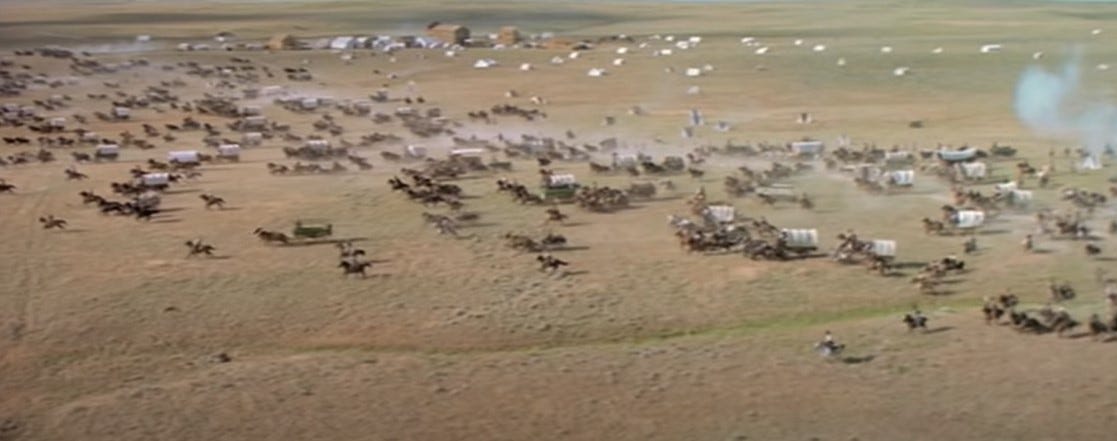
April 24, 1800 - The Library of Congress was established in Washington, D.C. It is America's oldest federal cultural institution and the world's most extensive library. Among the 145 million items in its collections are more than 33 million books, 3 million recordings, 12.5 million photographs, 5.3 million maps, 6 million pieces of sheet music, and 63 million manuscripts. About 10,000 new items are added each day.
April 25, 1967 - The first law legalizing abortion was signed by Colorado GOP Governor John Love, allowing abortions in cases in which a panel of three doctors unanimously agreed.
April 26, 1986 - At the Chernobyl nuclear power plant in the Ukraine, an explosion caused a meltdown of the nuclear fuel. It spread a radioactive cloud into the atmosphere, eventually covering most of Europe. A 300-square-mile area around the plant was evacuated. Thirty-one persons were reported to have died, while an additional thousand cases of cancer from radiation were expected. The plant was then encased in a solid concrete tomb to prevent the release of further radiation.
April 30, 1789 - George Washington became the first U.S. President as he was administered the oath of office on the balcony of Federal Hall at the corner of Wall and Broad Streets in New York City.
April 30, 1948 - Palestinian Jews declared their independence from British rule and established the new state of Israel. The country soon became a destination for tens of thousands of Nazi Holocaust survivors and a strong U.S. ally.
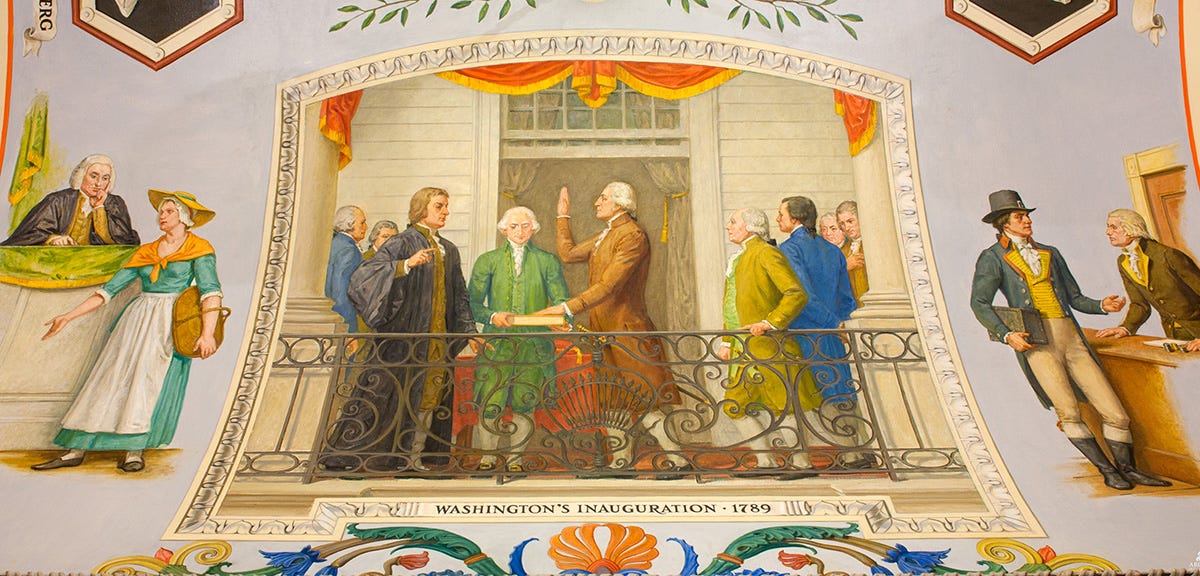
April 30, 1975 - The Fall of Saigon on April 30, 1975, marked the end of the Vietnam War, one of the most contentious conflicts of the 20th century. This event symbolized the failure of American intervention in Southeast Asia and led to significant changes in U.S. foreign policy and military strategy. It also resulted in the reunification of Vietnam under communist rule, shaping the region’s geopolitical dynamics.
April may not be the cruelest month, but it mixes memory, tragedy, history, desire, and often thoughts of what might have been. And this April isn’t even over yet.

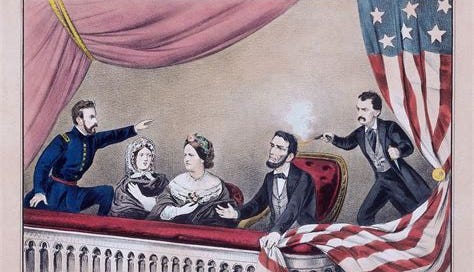



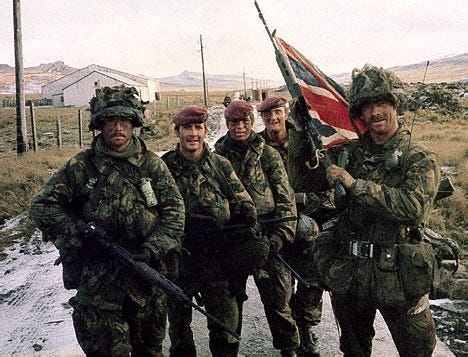



This is brilliant. Such an amazing history lesson. Thank you so much Kelly, I am deeply grateful for your wonderful essays. Lovely thing to wake up to this morning.
So interesting!!